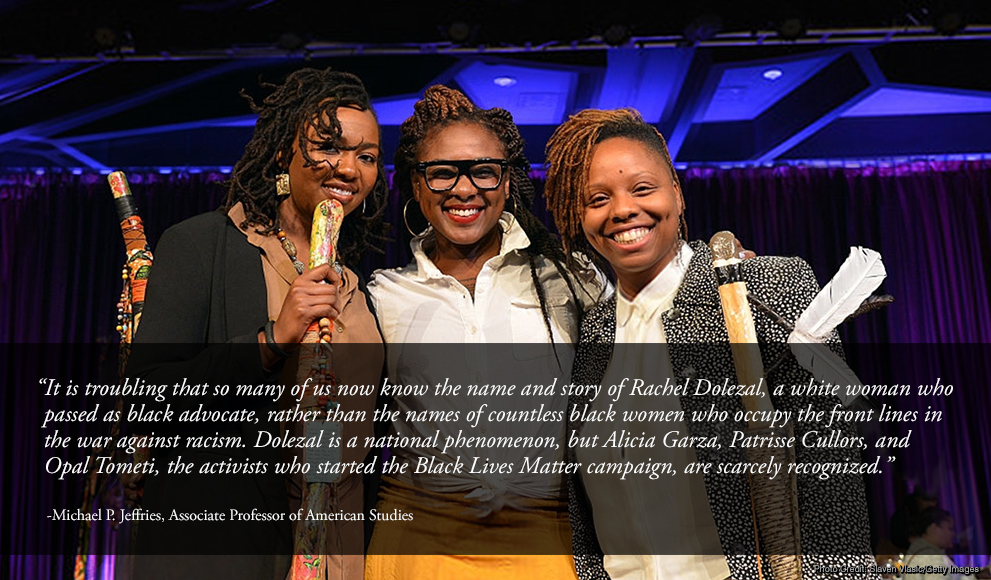American Studies Professor Michael Jeffries on Racism and Racial Identity

The now former president of the NAACP Spokane, Rachel Dolezal, has made headlines recently for misrepresenting her racial identity. Michael P. Jeffries, associate professor of American studies, penned an op-ed for the Boston Globe examining the peculiarities of the woman’s claims and offering a “lesson in how racism works.”
“What is so striking about Dolezal’s case… is her persistence. Even after being exposed, she has no plans to stop calling herself black,” Jeffries wrote. “She believes those who question her identity do not understand how race works, and that her self-definition, bolstered by her chosen family and profession, is the only definition that matters.”
He continued, “But that’s not how racial identity and racism work. The racial categories inherent to institutional racism are the product of law and social custom, but they are not randomly generated or freely chosen.”
Jeffries’ piece has been among the most popular articles on the Globe site for the past several days. He also spoke with NPR’s Morning Edition on the topic.
“The fact of the matter is that social identity is the result of a proclamation of personal identity and then the way that it plays out in the world. So her personal self-identity is one thing, but it can't really be validated in a meaningful sense if it doesn't correspond with her lived experience in the world and the experience of others who are also sharing that label,” Jeffries told NPR.
Beyond the “bizarre” aspects of this case, Jeffries wrote in the Globe, the attention Dolezal has received is problematic. “It is troubling that so many of us now know the name and story of Rachel Dolezal, a white woman who passed as black advocate, rather than the names of countless black women who occupy the front lines in the war against racism. Dolezal is a national phenomenon, but Alicia Garza, Patrisse Cullors, and Opal Tometi, the activists who started the Black Lives Matter campaign, are scarcely recognized.”
He continued, “Dolezal’s peculiar and sensational fall from grace have made her more recognizable than Rekia Boyd and Natasha McKenna, two black women among many who were killed by police with little national attention. Uncovering the truth about Dolezal is no substitute for speaking the names and telling the stories of true martyrs and warriors in the battle for social justice.”
Jeffries’ research emphasis is on race, gender, politics, identity, and popular culture. He is the author of “Paint the White House Black: Barack Obama and the Meaning of Race in America.”
Read Jeffries’ piece, “Rachel Dolezal a lesson in how racism works” on the Boston Globe website and listen to his interview with NPR’s Morning Edition on the WBUR website.
